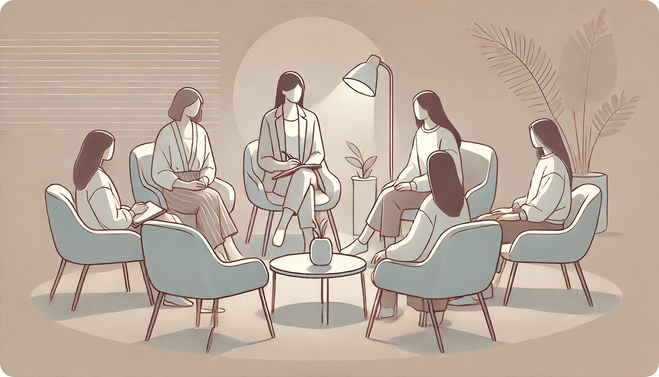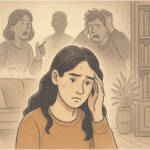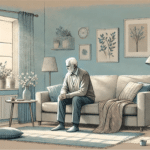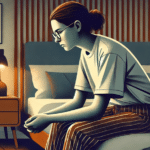Key Takeaways
- Schizoaffective disorder is a chronic mental health condition characterized by a combination of schizophrenia symptoms and mood disorder symptoms.
- While medication typically plays an important role, adding healthy lifestyle choices and therapy can make a big difference in how you feel.
- If you’re thinking about reducing medication, always work with your doctor.
- A Mission for Michael (AMFM) offers personalized, comprehensive treatment programs for individuals with schizoaffective disorder across California, Minnesota, and Virginia.
Managing Schizoaffective Disorder
Schizoaffective disorder combines symptoms of both schizophrenia and mood disorders. Most doctors recommend a treatment plan that includes medication, but many people are curious about what else can help.
Replacing medication with alternative approaches isn’t recommended and could be risky. However, adding supportive strategies can improve your overall well-being and might help you find the right balance in your treatment.
Founded in 2010, A Mission For Michael (AMFM) offers specialized mental health care across California, Minnesota, and Virginia. Our accredited facilities provide residential and outpatient programs, utilizing evidence-based therapies such as CBT, DBT, and EMDR.
Our dedicated team of licensed professionals ensures every client receives the best care possible, supported by accreditation from The Joint Commission. We are committed to safety and personalized treatment plans.
Lifestyle Changes

Nutrition plays a crucial role in mental health—balanced meals can support symptom management.
Nutrition
A brain-healthy diet includes whole foods like fruits, vegetables, and lean proteins. Try to include omega-3 fatty acids found in fish, walnuts, and flaxseeds, as they support brain function. Keep your blood sugar stable by limiting processed sugar, and stay hydrated throughout the day. While a balanced diet won’t cure schizoaffective disorder, it can support your brain health and help your body handle stress better.
Exercise
Exercise isn’t just good for your physical health – it can significantly impact your mental health too. Activities like walking, swimming, or biking release feel-good chemicals in your brain. Strength training can build confidence and reduce stress, while yoga combines movement with mindfulness for double benefits. Even gentle movement like stretching can help when you’re not feeling up to intense exercise. The key is finding physical activities you enjoy and can stick with consistently.
Mindfulness and Stress Reduction
Mindfulness practices teach you to stay in the present moment rather than getting caught up in distressing thoughts or fears. Simple techniques include focusing on your breathing, scanning through your body to notice sensations, creating mental places of calm through guided imagery, and releasing physical tension through progressive muscle relaxation.
Therapy Approaches
Cognitive Behavioral Therapy (CBT)
CBT helps you notice unhelpful thought patterns and learn more effective ways to respond to challenging situations. By working with a therapist, you can learn to identify patterns of thinking that lead to paranoia, hallucinations, or mood instability. Techniques like reality testing and cognitive restructuring help you develop a more balanced perspective. Over time, practicing these skills can reduce symptoms and improve coping strategies.
Dialectical Behavior Therapy (DBT)
DBT focuses on building emotional regulation, distress tolerance, and interpersonal effectiveness skills. This therapy is particularly helpful if you experience intense mood swings or struggle with impulsivity. Techniques like mindfulness, radical acceptance, and self-soothing strategies can help you manage strong emotions without feeling overwhelmed.
Supportive Therapy
Supportive therapy provides a safe space to express feelings, process challenges, and receive encouragement. Unlike structured approaches like CBT or DBT, supportive therapy is flexible and tailored to your immediate needs.
Family Therapy
Family therapy helps improve communication and understanding among loved ones. It educates family members about schizoaffective disorder, reducing stigma and fostering a supportive environment.
Signs You Need Immediate Help
Potential risks of managing schizoaffective disorder without medication include more frequent or intense symptoms, difficulty maintaining relationships or work, and increased risk of crisis situations. That’s why any changes to your treatment plan should always be discussed with your healthcare team.
Sometimes additional support is needed right away. Watch for severe mood swings that affect your safety, confusion or disorganized thinking that makes daily functioning difficult, thoughts of harming yourself or others, and hallucinations or delusions that feel overwhelming. If you experience these symptoms, please reach out to your doctor or a mental health crisis line immediately.
The most effective strategy for most people combines regular check-ins with mental health professionals, properly prescribed and managed medication, supportive lifestyle practices, and therapy and coping skills training. This integrated approach gives you the best chance of managing symptoms while living a fulfilling life.
Choose A Mission for Michael to Treat Schizoaffective Disorder

A peaceful and structured environment helps individuals manage their condition effectively.
At A Mission for Michael (AMFM), we know that schizoaffective disorder is complicated, and no two people experience it exactly the same way. That’s why we focus on getting to know you as a person, not just treating a diagnosis.
Our team includes doctors who understand medication, therapists who can teach coping skills, and support staff who are there to encourage you every step of the way.
We know that living with schizoaffective disorder can be challenging, but we also know that with the right support, you can manage your symptoms and build a life that feels meaningful to you.

A strong support system is key to managing schizoaffective disorder without medication.
When you come to us, you’ll start with a free, private conversation about what you’re experiencing
If you or someone you care about is struggling with schizoaffective disorder, we’re ready to help. We combine proven treatment approaches with genuine care for you as a person. Starting is simple – just call us at (844) 781-2356 to learn more about how we might be able to help with your specific situation. Reaching out can feel scary, but it’s the first step toward feeling better.
Frequently Asked Questions (FAQ)
Can schizoaffective disorder be managed without medication?
While some people hope to avoid medication completely, this isn’t usually recommended. Think of complementary approaches as partners to medication rather than replacements. Your doctor can help you find the right balance that works for you.
What could happen if I try to manage without medication?
Without proper treatment, symptoms might get worse. You might experience more frequent confused thinking or false beliefs, have trouble maintaining relationships or work, and face a higher risk of crisis situations.
How do things like diet and exercise help with schizoaffective disorder?
Healthy habits support your overall wellbeing. Good nutrition feeds your brain, regular exercise releases feel-good chemicals, therapy teaches you coping skills, and stress management techniques can help you stay balanced.
When is medical intervention absolutely necessary?
Don’t wait to get help if you’re experiencing ongoing hallucinations, severe mood swings, significant confusion, or thoughts about harming yourself or others. These situations need immediate professional support.
How can A Mission for Michael help individuals with schizoaffective disorder?
A Mission for Michael (AMFM) provides personalized, comprehensive treatment programs across California, Minnesota, and Virginia, offering customized care that combines psychiatric expertise, medication management, and holistic therapeutic approaches.













